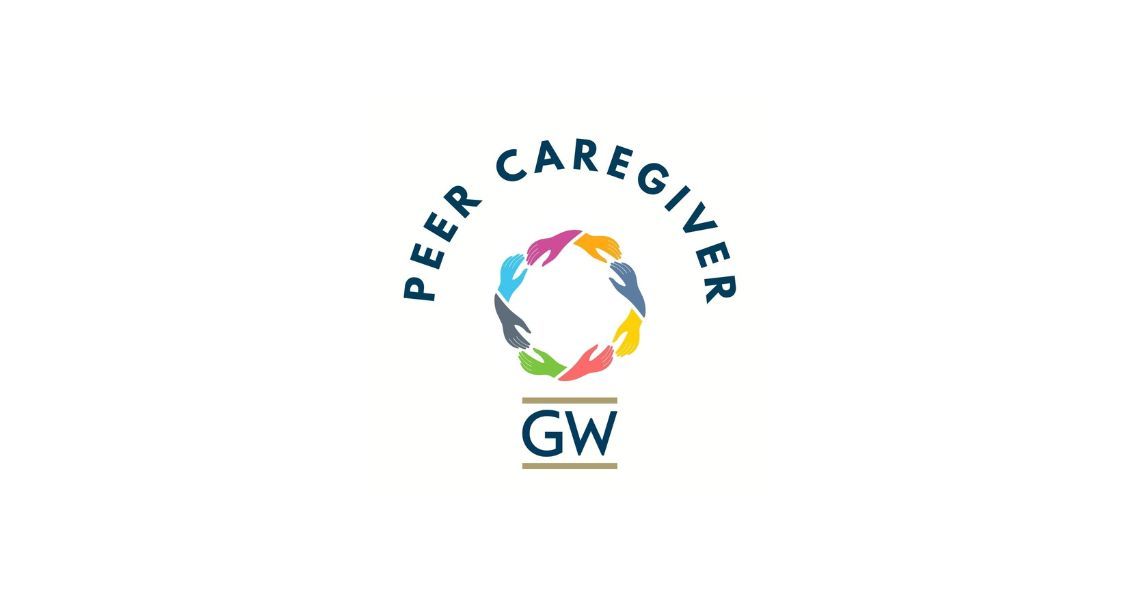In stressful times, frontline caregivers tend to turn to peers, supervisors, or other staff members for support. The GW Resiliency & Well-being Center (R&W Center), in partnership with the GW Medical Faculty Associates (MFA), developed a way to help members of the GW medical enterprise with the Care for the Caregiver (CFC) Program. Available to all GW School of Medicine and Health Sciences (SMHS), MFA, and GW Hospital employees, the CFC Program trains “peer caregivers” and managers to identify colleagues in need of support; provide brief, informal counseling sessions; promote hope among colleagues experiencing demoralization; share EAP resources; and recommend professional services to enhance individual well-being and combat burnout among everyone in the GW medical enterprise.
GW peer caregivers act as an easily accessible, first line of support for GW healthcare professionals. According to Viktoriya Karakcheyeva, MD, MS, NCC, LPC, LCPC-SP, LCADS, R&W Center behavioral services director and CFC program manager, the CFC Program utilizes the Psychological First Aid (PFA) curriculum and the HOPE Module. An ongoing and ever-changing resource, the Hope Module’s purpose is to instill hope, optimism, and encourage connection.
Karakcheyeva helps peer caregivers to recognize signs of distress, burnout, demoralization, and early signs of mental health issues using PFA and the Hope Module. Following completion of the CFC training program, the R&W Center team continues to work with peer caregivers. They offer monthly supervision to discuss individual as well as department-level needs, interventions, and any challenges faced by the caregiver, health care professionals, or GW health-related groups.
Lorenzo Norris, MD, holds several roles at GW. Norris is the medical director of the R&W Center, chief wellness officer for the GW medical enterprise, a psychiatrist at the MFA, associate dean for Student Affairs and Administration, and associate professor in the Department of Psychiatry and Behavioral Sciences at SMHS. Both Norris and his colleague, Karakcheyeva, contributed to the recent article, “Psychosocial Peer Support to Address Mental Health and Burnout of Health Care Workers Affected by COVID-19: A Qualitative Evaluation” – an evidence-based, in-depth overview of GW’s CFC Program, psychosocial peer support programs for health care workers, and organizational efforts needed to simultaneously promote well-being in healthcare.
In their recent collaboration piece, both internal and outside stressors were highlighted as contributing to healthcare worker stress and burnout. Internal stressors included, but were not limited to: understaffing and workload, psychological stress of negative patient interactions, traumatic patient events, and interpersonal issues among staff. Outside stressors often involved family phenomena: family member job loss, health issues, or loss of a loved one. In addition, the research suggests that outside stressors were exacerbated by the COVID-19 pandemic.
Healthcare worker burnout reached epidemic proportions during the COVID-19 pandemic. The pandemic’s adverse effects on healthcare professionals acted as the original motivation for the CFC Program’s creation. “At the time the CFC Program was initiated, Lea Simms, former MPA student and current senior faculty specialist at GMAP, helped to start the training, assisting Brandon Kohrt, director of the Center for Global Mental Health Equity” said Karakcheyeva. The program later became housed within the R&W Center, under Karakcheyeva’s direction.
Peer Support programs for healthcare workers are extremely advantageous. “Peer caregivers provide a safe entry point to help and linkages to an array of supportive services. In many cases interventions from trained professionals are necessary and this is when the R&W Center steps in to address both individual and departmental needs, in the area of wellness” said Karakcheyeva. In addition, the R&W Center team relies on its peer caregivers for relationship building on the individual and departmental level, along with advocating for well-being initiatives and events (in-person and virtual).
The R&W Center’s goal is to have a peer caregiver representative available in every department throughout the GW medical enterprise (SMHS, MFA, Hospital). If you'd like to become a peer caregiver, please fill out this form. If you went through the training already, please join our monthly peer caregivers supervision meetings on the second Thursday of the month at 12 PM ET this Zoom link.
Interested in speaking with a peer caregiver? Contact Viktoriya Karakcheyeva, MD, MS, NCC, LCPC, LCADS, R&WC behavioral services director, at vkarakcheyeva [at] gwu [dot] edu (vkarakcheyeva[at]gwu[dot]edu).
